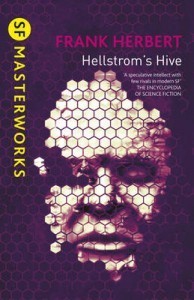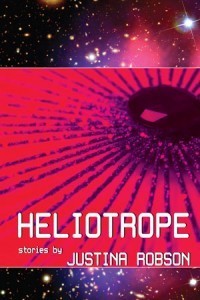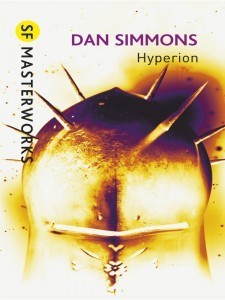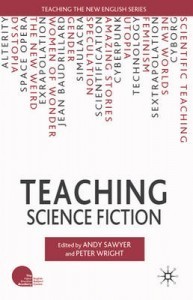Adam Roberts's Blog, page 24
June 20, 2011
Dragon with Girl Tattoo
David Pitt, evidently a man of critical discernment, reviewing books in in the Canadian Chronicle Herald:
And, just for the heck of it, you should also check out Adam Roberts' The Dragon with the Girl Tattoo (Gollancz), a wickedly funny parody of the first Millennium novel, The Girl with the Dragon Tattoo. It follows the events of Larsson's book pretty closely: Hellfire Vagner disappeared three centuries ago, journalist Kaal Brimston is hired to find out what happened to her, and Lizbreath Salamander ultimately solves the mystery. Larsson's dark, complex novel is an almost obligatory target for parody, but Roberts, who also wrote the hysterical The Va Dinci Cod (a spoof of The Da Vinci Code), shows a lot of respect for the source material. Sure, he makes fun of it, but he also clearly understands what Larsson was doing, and, on its own terms, this parody is as layered and surprising as the original.
Nice!
Herbert, Hellstrom's Hive (1972)

The latest handsomely-covered Gollancz Masterwork reissue (with an introduction by me) popped through the door. Interesting lesser-known Herbert, well worth checking out -- a snip at £6:39.
Hiatus
Hiatus may refer to:
Hiatus, Recess (break)
Hiatus, a small difference in pitch between two musical tones
Hiatus (linguistics), a phonological term referring to the lack of a consonant separating two vowels in separate syllables, as in co-operation
Hiatus (television), a break of several weeks or more in television scheduling
Hiatus (anatomy)
Hiatus, a discontinuity in the age of strata in stratigraphy
Hiatus (band), a Belgian crustcore band
Haitus (housemove), the enforced and massively frustrating gap of two-and-a-half-weeks between moving into a new house, and finally getting the Sky Broadband (for which we are paying) up and running.
Still, I'm back now. And 'Belgian Crustcore' sounds very cool.
May 11, 2011
BL SF
OK? Here's what next week holds:
Out of this world?: Why Science Fiction speaks to us all
Friday 20 May 18.30 -20.00
The British Library Conference Centre
Throughout history, people have asked 'what if?'. We have always allowed our imaginations to create other worlds as expressions of our wildest dreams, hopes and fears, and so better to understand our own. 'Science Fiction' expresses this human need in potent ways, but so does the work of Swift, Lewis Carroll and George Orwell. The story and present state of our speculations are explored by Erik Davis, China Miéville, Adam Roberts and Tricia Sullivan. Chaired by Sam Leith.
Tickets £7.50 / £5 available at http://boxoffice.bl.uk, by calling 01937 546546 (9am-5pm Mon-Fri) or in person at The British Library
Do come! There's lots of other sfnal stuff stuff going on at the BL over the summer, too. And The British Library exhibition 'Out of this World: Science Fiction but not as you know it' opens on Friday 20 May as well. Come! I insist!
May 7, 2011
Justina Robson, Heliotrope (2011)

In the post today: the excellent Justina Robson's first collection of short fiction [published by the Australian press Ticonderoga; in the UK you can buy it from amazon]. I get a copy because I wrote the introduction (Justina in her 'acknowledgements' is kind enough to call it 'insightful', and too kind to point out that it's not flawlessly proofed); but if I hadn't been complimentaried a copy I would have bought one anyway. Robson is a great writer, and her short pieces are some of her best.
The Rees reading
The last twelve months, like all the previous twelvemonths in my writing career, have not been lucky for me in terms of awards (of course you may think this has nothing to do with luck and everything with my many demerits); but I have been lucky in a number of, I think, genuinely perceptive critical readings of my novels. After Paul Kincaid and Rich Puchalsky, comes another really perceptiive piece by Gareth Rees: 'Four novels by Adam Roberts'. I am, naturally, very far from the best-placed individual when it comes to judging rightness or wrongness with respect to this sort of thing; but I can say that I recognized myself in his nuanced, insightful piece.
Although I can see influences from both modernism and postmodernism in Roberts' work, I think his books are actually a fairly traditional form of science fiction: idea-driven, short and punchy, not too bloated with world-building, aiming for an original mix of style and substance. He's writing the kind of book that I used to find in the library between bright yellow Gollancz covers when I was young: like mid-period Robert Silverberg (A Time of Changes, To Live Forever, Dying Inside, ...), or early Ian Watson (The Embedding, The Martian Inca, Alien Embassy, ...). Energetic, stripped of detail, stylistically distinctive, short enough that you can forgive them their faults. This kind of work doesn't garner many awards or collect much in the way of a fan base, so it's always been a minor part of the publishing mix, and authors who made a mark in this niche have usually had to break out of it to gain mainstream success: I don't think it's a coincidence that Silverberg and Watson both turned their talents to multi-volume fantasy. Roberts has yet to take that path.
Good call on the 'I nodded' on p.83 of Headless, too: that slipped through the net.
April 21, 2011
Hyperion. And on. And on.

Through the letterbox today: lovely new VG Masterworks edition of Simmons' Hyperion, with an introduction by me. Trundle over to Punkadiddle for some thoughts on this title (and, if you're so minded, longer thoughts on the sequel volumes). Worth buying, if you're looking for a good read.
April 7, 2011
Vote Early and Vote Often

Click to embiggen. (Hint: bottom right hand corner. That's right! Gollancz has been publishing since AD 196! Appropriately enough, that was the 'Year of the Consulship of Dexter and Messalla'; which explains why Orion publish all the Dexter books).
No, wait: you're looking in the wrong bottom right hand corner ... [Link]
April 4, 2011
Sawyer & Wright (eds) Teaching Science Fiction (Palgrave 2011)

Just in: this promising looking collection of essays by many luminaries of contemporary SF criticism:
The importance of science fiction to undergraduate literary studies cannot be underestimated. Its capacity to challenge students' social, political and cultural perspectives makes it invaluable in highlighting the contingent nature of contemporary society and the potential for change. Teaching Science Fiction is the first book in thirty years to address how science fiction might be taught to this effect. It presents comprehensive treatments of the major phases in the development of the genre including the scientific romance, Golden Age science fiction, the New Wave and science fiction's engagement with the postmodern. The book identifies and explores innovative teaching strategies which will both engage and challenge students whilst providing practical advice on how an sf course can be designed, delivered and evaluated. Sample syllabuses, a detailed chronology, a compact history of the genre and an extensive bibliography make this an invaluable guide for anyone teaching, or considering teaching, science fiction at undergraduate level.
Contributors include the currently BSFA nominated Paul Kincaid, Gary K Wolfe, Chris Ferns, Gary Westfahl, Lisa Yaszek, Rob Latham, Andrew M. Butler (he was using the stylish 'M' middle-initial to differentiate himself long before Iain Banks got in on that act), Brain Attebery, Uppinder Mehan, M, Elizabeth Ginway, Mark Brake, Neil Hook and of course the editors Andy Sawyer and Peter Wright, estmable SF scholars both. I mention it here because I'm in there too (my chapter is called 'Teaching Scientific Romance'); but there is a great deal of critical, theoretical and --as you'd expect from the title -- pedagogicaly practical meat between these covers.
April 2, 2011
DIY Cover Design
I'm wondering about putting out an ebook edition of a previously unpublished book. Not sure about it, to be frank; but I am at least wondering. And following this piece of good advice from [namedrop] Paul McAuley [/namedrop] ('one bit of advice - covers. Even a 70p short story needs a good cover. If you don't have any graphic design background get someone who has') I've been thinking about cover design. I wrote a novel called A Solid Gold Penny which hasn't yet been published; and in the absence of regular publishers badgering me to put it out themselves, I'm wondering if it might suit ePub -- either the whole thing, or else the first third, a self-contained novella-length piece about a seventeenth-century orphan who picks up the power of life or death after an alien encounter. Copyediting my own title, proofing it, putting it on amazon and so on are all ahead of me, and all more or less unappealing prospects: but Paul's point about covers is something else again. Probably I should pay someone who has graphic design experience to do a better job. What do we think of the above?
___
Update: another go, less funereally rendered, and taking on board Sensawunda's helpful pointers in the comments:
Adam Roberts's Blog
- Adam Roberts's profile
- 558 followers





